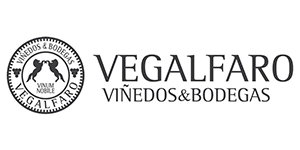
Ecological Rebel.Lia white wine
The Wine white organic Rebel.Lia, coming from the Vegalfaro cellars, with DOP Utiel - Requena, made with two types of grape.
ADD 2016
It is characterized by a drought that had been accused. However this helped a sublime health in grapes since it rained just in spring and the white grapes ripening period and early inks did not overly heat by what got the freshness and good aromas of the skin. Half harvest there were rains that had to wait longer for long cycle inks and the health helped it hold well getting great potential.
VARIETAL
Select blend of Chardonnay (50%) and Sauvignon Blanc (50%) of vineyards from farm house Alfaro y Pasamonte, each with very different characteristics of the soil, the first predominantly clayey loams, while in the second field It is calcareous. Viticulture is double guyot, with vintage green, or thinning of clusters, to limit yields and improve the maturation and concentration of flavour. The grapes were harvested during the first week of September in a moment of optimum ripeness.
ELABORATION
The grapes macerated in cold as soon as they arrive to the winery. After they are pressed and the musts fermented at low temperature independently. Chardonnay finish their process in French oak barrels for three months, with its fine Lees battonage.

Vegalfaro: Viticultura tradicional en cultivo ecológico.
Bodegas Vegalfaro està situada en la Plana de Requena-Utiel, Comunidad Valenciana.
El viñedo esta formado por 60 hectareas, las cuales están distribuidas en tres fincas que se diferencian por la tipología del suelo, el microclima y la variedad de uva. Las parcelas están certificadas con el sello de Cultivo Ecológico, así como la bodega e instalaciones enológicas.
El paraje de viña Los Balagueses se encuentra en la finca la Muela es una finca de 330 hectáreas. En este lugar, los iberos ya cultivaban la vid y elaboraban vino hace casi 3.000 años.
Fue en 1999 cuando Andrés Valiente, junto a su hijo Rodolfo, decide construir Bodegas Vegalfaro para embotellar los vinos. Anteriormente, su bisabuelo Leonardo elaboraba vino en su bodega y su otro bisabuelo, José, era destilador de orujos.
Más adelante, en febrero de 2011 consiguieron la calificación de Pago, la más alta consideración de un viñedo en España, en el que se obtienen vinos con rasgos y cualidades singulares. Se trata de una mención equiparable a las existentes en otros países europeos que hacen referencia a su terruño, como las de Chatêau, Cru, Clos y Domaine en Francia, Castello en Italia, o Quinta en Portugal.